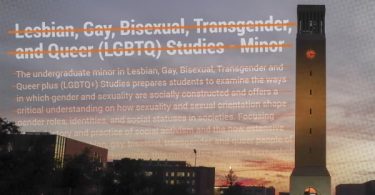The Kids Online Safety Act (KOSA) was passed by the U.S. Senate a few weeks ago with the goal of making the internet a safer place for children. Although well-intentioned, implementing this act poses major concerns to LGBTQ+ youth. The language is vague and risks limiting access to crucial support and resources LGBTQ+ youth rely on in Colorado and across the country.
Like many queer Coloradans, as a young person I relied on online networks to find safe spaces to build community. This act threatens to deny today’s young queer people the same ability to build community online while failing to employ better ways to protect kids.
I am troubled by the act’s vague language around content moderation and censorship without adequate privacy protections. The broad stipulations spelled out in the bill leave way too much room for interpretation. It is unclear what steps platforms might take to regulate content under this act. It could lead to unnecessary restrictions or censorship of content created by and for LGBTQ+ people — content that may be a lifeline to a young queer person.
Stay up to speed: Sign up for daily opinion in your inbox Monday-Friday
Platforms may feel pressured to remove or restrict LGBTQ-related content to comply with this act, and what is deemed inappropriate will rely upon who is at the helm of the Federal Trade Commission. With the specter of another Donald Trump presidency, some agencies may be subject to more restrictive and blatantly anti-LGBTQ censorship policies.
Moreover, this act incentivizes increased data collection on children and adults, subjecting marginalized groups, especially LGBTQ youth, to additional digital surveillance. This is particularly worrisome for those who have not yet come out to friends, family, or teachers. LGBTQ+ youth rely on online spaces to provide a sense of belonging and support often lacking in their immediate environments. By limiting access to online LGBTQ+ communities and vital information, this act could exacerbate feelings of isolation among queer youth, especially in rural or conservative areas.
As we strive to protect children online, we must ensure that our solutions do not create new dangers. Instead, we should increase digital literacy and privacy education and implement non-invasive parental controls at the app-store level through federal legislation. This approach is more sensible and effective because it empowers parents to decide what apps are appropriate for their children without the risk of intrusive data collection. Parents could approve app downloads for their kids in real time, ensuring a safer internet experience tailored to each child’s needs.
Congress should pass common-sense legislation that genuinely protects our youth online, while balancing safety with the need for accessible, supportive online communities. We can protect young people online without incentivize overreach and censorship of LGBTQ+ communities.We need a simpler, more effective solution than what this act offers.
Topher WIlliams is vice chair of Cobalt Advocates in Lakewood.







